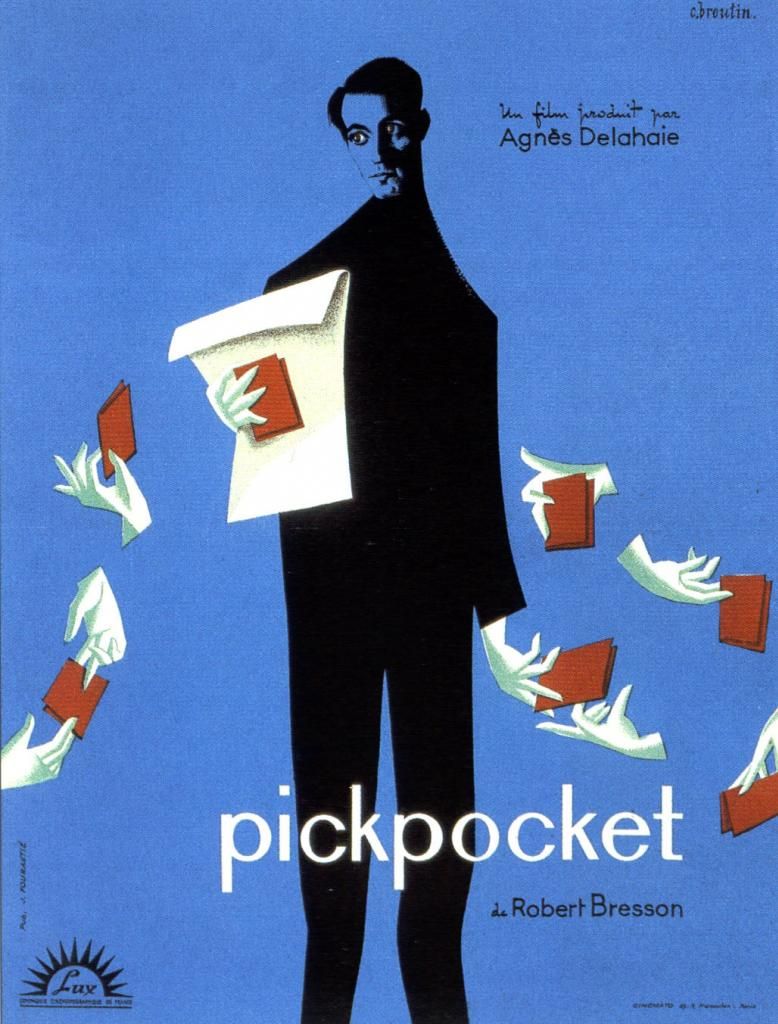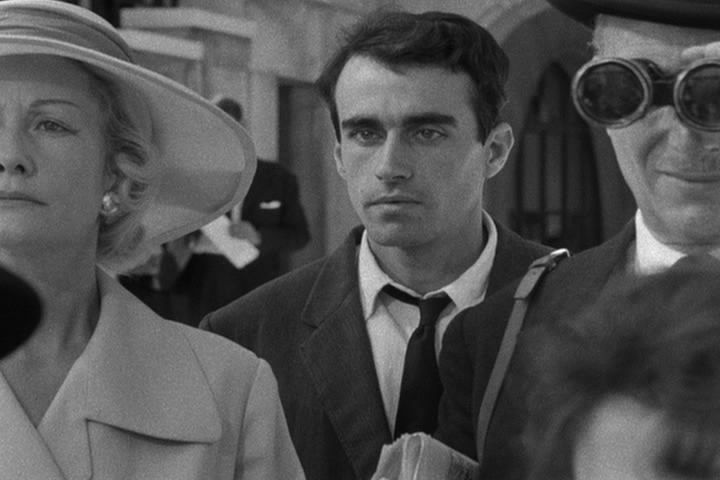Monday, November 12, 2012
Pickpocket
Pickpocket
1959
Director: Robert Bresson
Starring: Martin LaSalle, Marika Green, Jean Pelegri
A race track. The bell sounds. Everyone is jostling for position, craning to see the horses. Everyone except Michel (LaSalle). Although he is looking in the same direction as the crowd, it is clear that his attention is focused on the people around him, not the horses. His hand reaches for a lady’s purse in front of him. With incredible care and suspense, he slowly unhinges the clasp on the purse, visibly jumping when the clasp breaks free.
Ah, Michel, the “hero” of Bresson’s crime drama Pickpocket. Of course, because this is a Robert Bresson film, Pickpocket does not fit the mold of a traditional crime drama. Michel is a pickpocket by choice, not by situation or circumstance. He sees himself as being better, somehow, than other men, and actively uses it as an excuse for his crime. Even the death of his mother does not imbue a sense of law and order into him, but it does introduce him to Jeanne (Green), a young woman who tries to show him the way to his moral salvation.
One of the most interesting parts of Pickpocket is Michel’s attitude toward crime. He actively seeks out the police chief (Pelegri) at a restaurant, then debates criminology with him with a series of “what if” scenarios, thinly masking his own personal experience in the streets. He sees himself as some sort of god of petty thieves, reading works by a pickpocket extraordinaire, learning the finer aspects of his “craft” from another pickpocket, and assembling a crackerjack team. Michel’s ego is enormous, yet the reality remains that he gets caught. Several times. He is no mastermind; he is an addict. He cannot help himself. He cannot stop picking pockets (something which, by the way, he gets caught doing several times), and convinces himself that he is somehow morally “allowed” to do it because he is a superior man. It reeks of Leopold and Loeb, and, therefore, Hitchcock’s Rope in this sense. It is Jeanne who, through her simplicity and faith, has the best results when trying to argue with Michel.
Bresson is a director known for his minimalism, and Pickpocket is no exception. While Michel is certainly deluded in his philosophies, there are no grandiose speeches or violent conflicts. The acting is done by nonprofessionals, and is as simple and straightforward as it gets. Bresson is fascinated with the physical logistics of pickpocketing, and holds these sleights of hand on the same level of importance as Michel’s Nietzsche-esque psychology. With a strange sense of cool detachment, we watch as Michel steals again and again and again. The film could be a crash course in how to learn the trade.
As much as I love Bresson, the weakness of Pickpocket is LaSalle’s performance. Because Michel is slightly off his rocker, LaSalle does actually need to act. As a nonprofessional, though, he falls short in several scenes. I’m all for the power of the nonprofessional in a film, but LaSalle doesn’t quite cut it. He saps the film of some of its power through his inability to quite convey the message of Michel’s loosening grasp on reality. It makes the final scene of the film ring wildly untrue, and, unfortunately, it then feels like we end on a weak note. I don’t buy for a second that Michel has somehow found faith and the error of his ways. LaSalle just can’t quite convince me.
This is a good movie, but it is not Bresson’s best. When I want a tour de force of minimalist Bresson, I’ll easily pick A Man Escaped over this.
Arbitrary rating: 7/10
Labels:
1001 movies,
1950s,
1959,
7 out of 10,
foreign,
french,
pickpocket,
robert bresson
Subscribe to:
Post Comments (Atom)


jordan shoes
ReplyDeletemichael kors handbags
skechers shoes
yeezy boost 350
links of london
louboutin shoes
longchamp handbags
michael kors handbags
nike polo shirts
chrome hearts